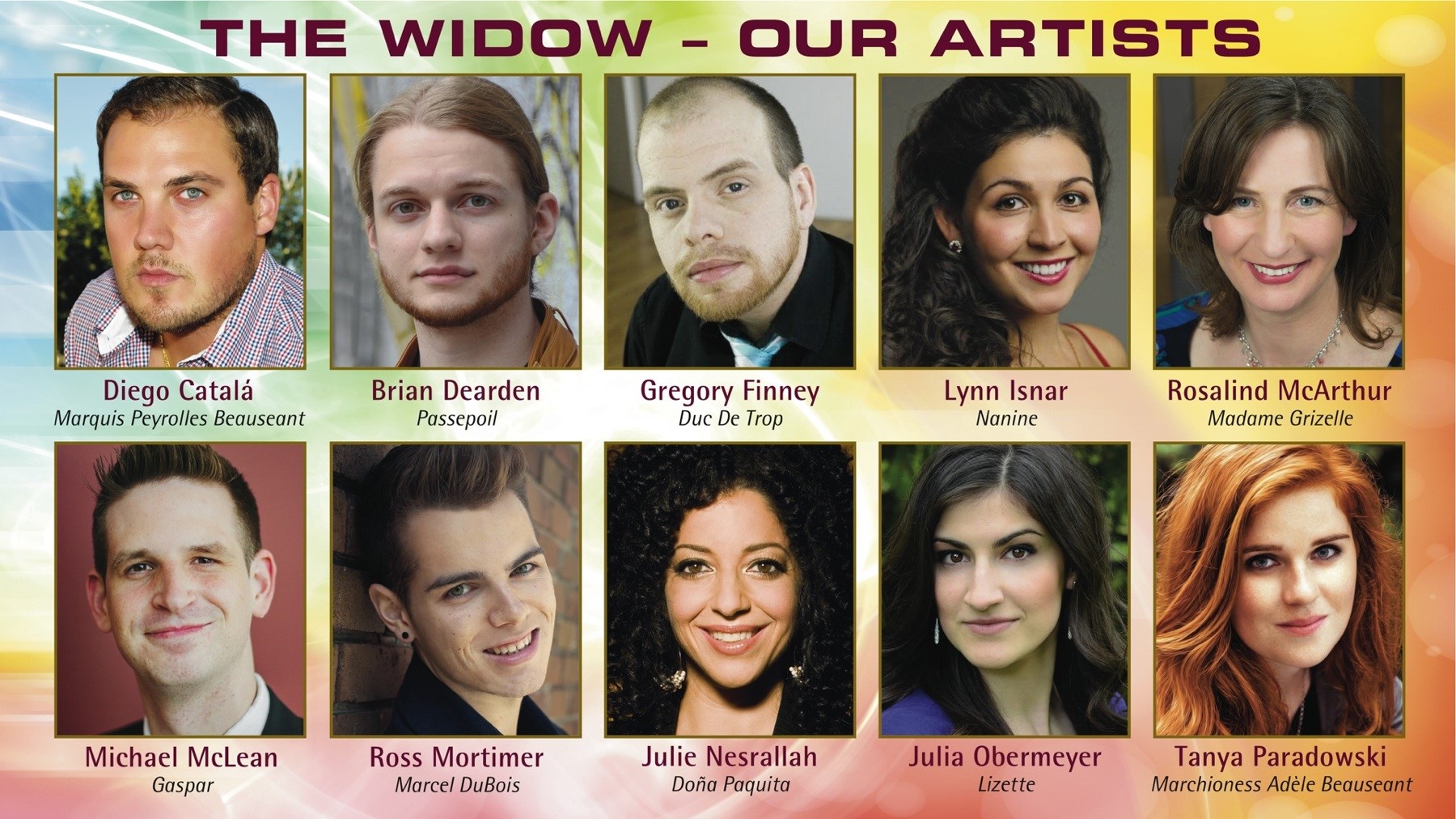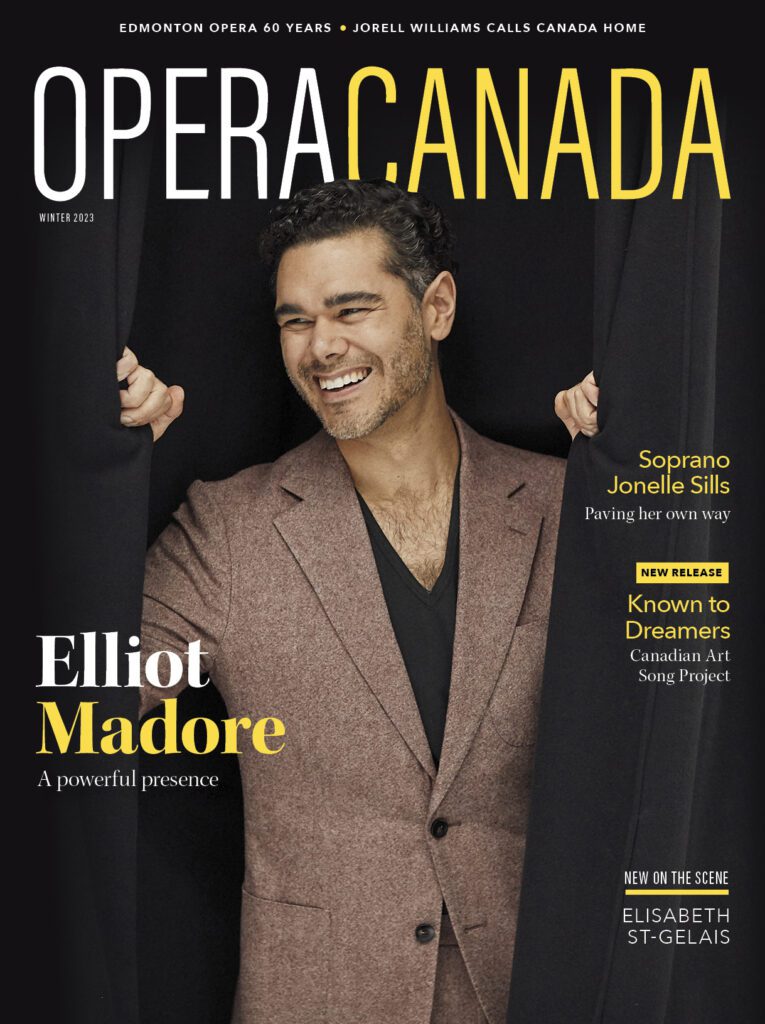Is Canada’s own ‘Merry’ Widow really Canadian at all?
Marketed as Canada’s own ‘Merry’ Widow, referencing Franz Lehar’s famous German operetta The Merry Widow, Toronto Operetta Theatre’s single performance of Calixa Lavallée’s The Widow (presented in hounour of Canada’s 150th anniversary celebration at the St. Lawrence Centre for the Arts on Nov. 5th) left me wondering what exactly was Canadian about it? After seeing and hearing this production, I couldn’t help but ask myself what about this opéra-comique, a genre that developed into operetta, is Canadian? To my eyes and ears, the answer is not much.
Lavallée: Canadian, or a European imitation?
Remembered by most Canadians for having composed our national anthem in 1880, the Canadian Encyclopedia explains that Lavallée had no time to cultivate a personal style because he was travelling so often. Nowhere is this more apparent than in The Widow. Premiered in 1881 in New Orleans, The Widow is an attempt to reproduce the hilarious opéra-comique of French composer Jacques Offenbach, whose Orphée aux enfers includes the famous Can-Can; and, the music of Arthur Sullivan, who wrote such favourites as The Pirates of Penzance. Lavallée’s music not only lacks the flair of these admitted masters of the genre, but also their comic ingenuity, whereby the music comments on and enhances the text. This is most apparent in the first act where Lavallée’s overly simplistic score, even for operetta, doesn’t differentiate his comedic from his romantic characters. Where the former normally sing catchy upbeat numbers, the latter usually steal our hearts with vocal acrobatics and soaring melodies.
A plot that lacks Canadiana
Although the words themselves lack the craft and wit of W.S. Gilbert, the plot of The Widow written by Frank H. Nelson and revised by Guillermo Silva-Marin was an amusing tale of not one, but two mistaken identities (a necessary staple of any successful operetta)! It tells the story of the Spanish widow Doña Paquita de Fuenteovejuna, who returns to Marseilles, France, to find her fiancé, Marquis Peyrolles Beauseant, engaged to another woman. This launches into a humorously complex, and predictably non-sensical, plot in which Paquita fakes her own death in order to exact her revenge on her ex-fiancé.
Upon reflection, it appears that the only Canadian element of this operetta is its composer’s birthplace. The plot is set in Europe, and its characters are European stereotypes (especially Paquita, who is virtually another Carmen). If we wanted—as TOT intended—to celebrate Canadiana, perhaps the operetta might have been set in Canada with an altered text in a manner similar to the COC’s recent, Niagara-on-the-Lake production of Donizetti’s L’elisir d’amore.
A Canadian cast breathes new life
The closest The Widow came to being Canadian was through its cast of reputed Canadian performers, particularly the stunning mezzo-soprano Julie Nesrallah as Pequita. Equally, if not more exciting was the debut of local, young talent. Garnering the greatest acclaim was Armenian-Canadian soprano Lynn Anoush Isnar as the charming Nanine. Although still a bit green and needing to develop her stage presence, she managed to steal the show when she sang. This was nowhere more apparent than at the beginning of Act II, which Isnar opened with the aria “Smiling Hope” where she completely floored the audience with the dark beauty, and bloom of her supple voice. She topped the aria off with an octave leap, starting with a carefully controlled piano, which grew into an opulent forte. Nanine’s love interest Marcel DuBois, performed by Ross Mortimer, proved himself a wonderful counterpart to Isnar. He used his beautiful, light lyric tenor voice tenderly, demonstrating a great command of English lyric diction. Stepping out of the TOT chorus for the first time into the short role of Marchioness Adèle Beauseant, mezzo-soprano Tanya Paradowski sang with assurance and moved with confidence on stage; I hope to see her in a larger role soon. More established Toronto singers rounded out the cast, including baritone Diego Catalá, who sang Marquis Peyrolles Beauseant with luscious tone and tenor Michael McLean, who as Gaspar Minard, deftly captured the operetta spirit with his effortless singing and comic timing. At the piano, Michael Rose masterfully anticipated the singers’ every vocal whim.
The disturbing truth behind The Widow
However, the question remains, what is Canadian about The Widow and its performance? Are we nothing more than an amalgam of European culture? And if not, what distinguishes us? Perhaps this is actually the best reason to stage this operetta for our country’s 150th celebrations: a European-inspired work, by a Canadian-born composer who lived and married in the United States, gives us a chance to reflect on whether we have constructed our own identity. As they did with Ernest, the Importance of Being (premiere, 2008), perhaps TOT should be balancing contemporary, Canadian-made operetta with productions like The Widow, so that we may find out.










